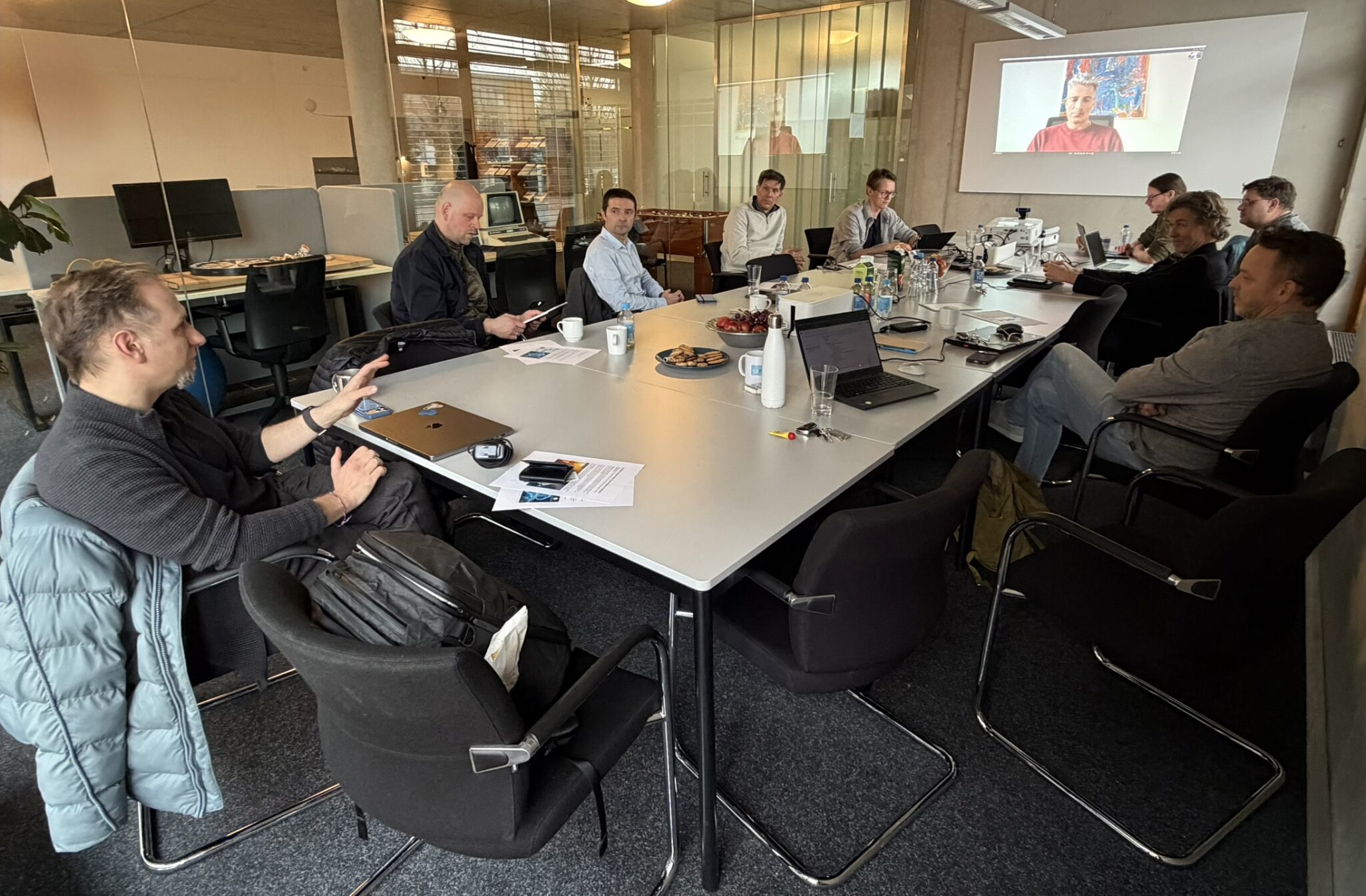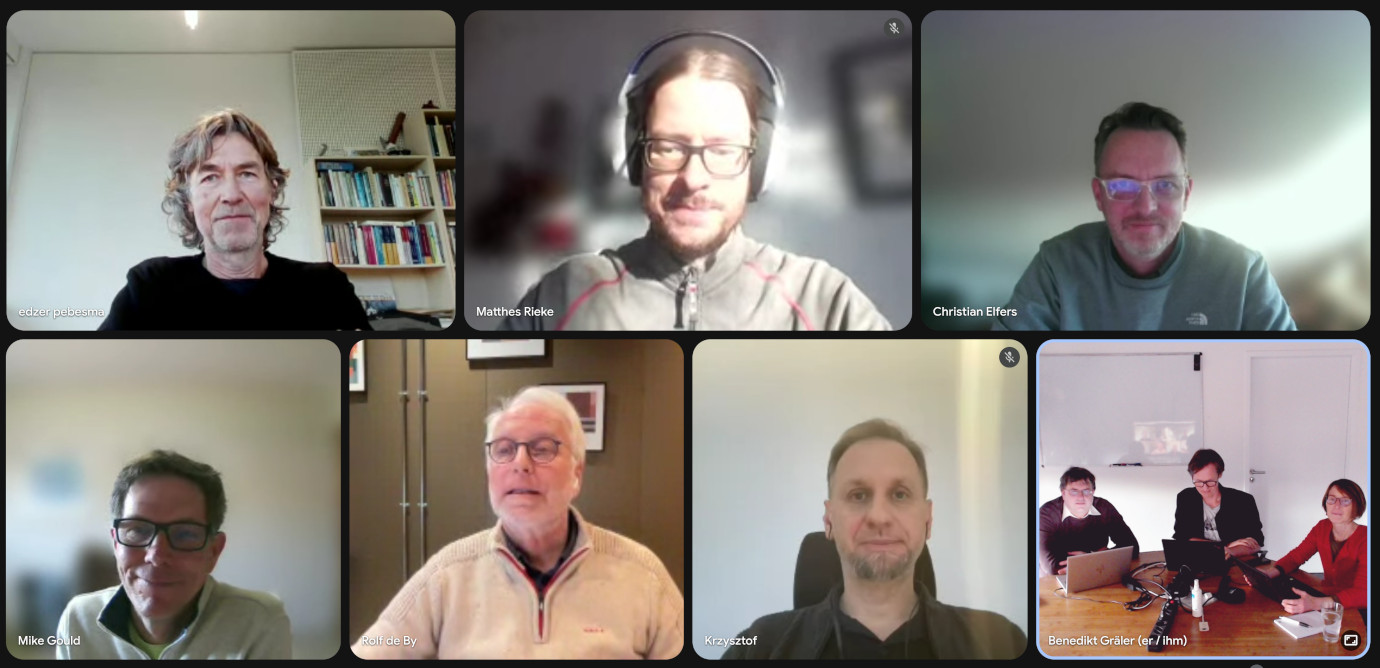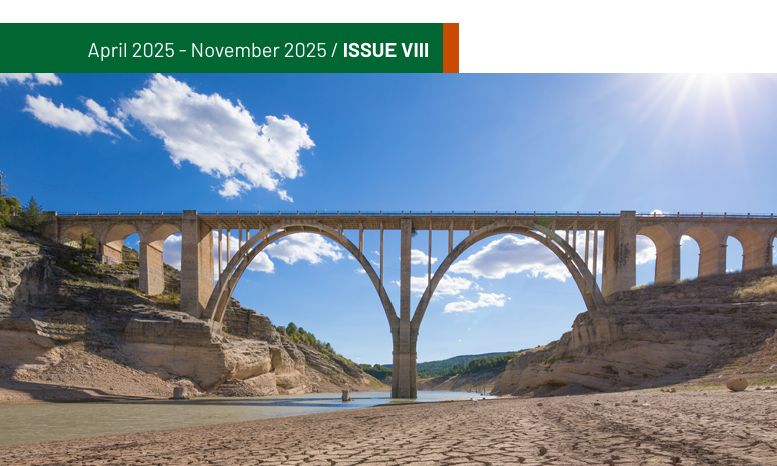Members of 52°North’s Scientific and Technical Advisory Board met to discuss the bigger picture
Oh my, what an exhilarating day!
Many thanks to Krzysztof Janowicz (Universität Wien), Carsten Keßler (Hochschule Bochum), Serkan Girgin (ITC, Uni Twente), Mike Gould (Esri/Universitat Jaume I), Antonio Krüger (DFKI), Edzer Pebesma (Universität Münster) and Christian Elfers (con terra) for their time, and of course their critical questions, brilliant insights, intriguing scenarios and ongoing support!
Lots of food for thought.



